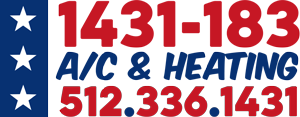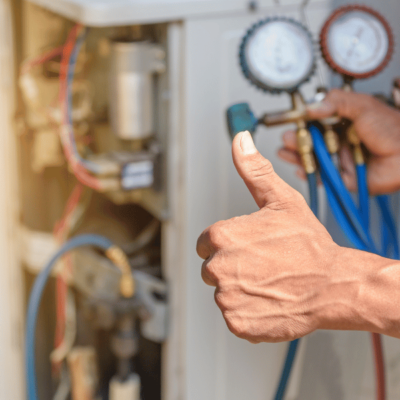As the scorching summer months approach, ensuring your air conditioning system is in optimal condition becomes essential for maintaining a cool and comfortable home environment. However, like any mechanical system, air conditioners can encounter problems from time to time.
In this blog post, we will guide you through troubleshooting common AC issues and provide practical examples to help you diagnose and resolve problems efficiently.
Insufficient Cooling
One of the most common issues homeowners face is inadequate cooling. If you notice that your air conditioning system is running but fails to effectively cool your home, several factors could contribute to the issue:
- Clogged Air Filter: A dirty or clogged air filter can restrict airflow, hindering the cooling process. Check your filter and replace it if it appears dirty or has been in use for more than three months.
- Refrigerant Leak: Low refrigerant levels can impede the cooling capacity of your AC system. Signs of a refrigerant leak include ice on the evaporator coil or a hissing sound near the refrigerant lines. If you suspect a leak, contact a professional HVAC technician to locate and repair it.
Air Conditioning System Not Turning On
If your AC system fails to turn on altogether, the following issues might be the culprits:
- Tripped Circuit Breaker: Check your electrical panel for a tripped circuit breaker. If you find one, reset it and see if the AC system starts running again. However, if the breaker trips repeatedly, there may be an underlying electrical issue that requires professional attention.
- Thermostat Malfunction: Ensure that your thermostat is set to the desired temperature and in cooling mode. A faulty thermostat may prevent the AC system from turning on. Consider replacing the batteries or upgrading to a newer model if necessary.
Noisy Operation
Unusual noises coming from your air conditioning system can be indicative of underlying problems:
- Rattling or Banging: Loose components, such as fan blades or mounting brackets, can create rattling or banging sounds. Turn off your AC system and carefully inspect the unit. Tighten any loose parts or contact a professional technician for assistance.
- Squealing or Grinding: These sounds may suggest issues with the fan motor or belt. Lubricating the motor or replacing a worn-out belt can often resolve the problem. However, it’s best to seek professional help for complex repairs involving motors or belts.
Uneven Cooling
If certain areas of your home feel cooler or warmer than others, your AC system may be experiencing:
- Blocked Vents: Ensure that all supply and return vents are open and unobstructed by furniture, curtains, or other objects. Blocked vents can disrupt proper airflow and result in uneven cooling.
- Ductwork Issues: Damaged or poorly insulated ductwork can cause temperature variations. Inspect your ducts for leaks, loose connections, or visible damage. Professional duct sealing or repair may be necessary to restore proper airflow.
By familiarizing yourself with common AC issues and their troubleshooting methods, you can save time and money by resolving minor problems on your own.
It’s important to remember that HVAC systems are complex, and some issues require professional expertise. If you encounter persistent problems or are unsure about the appropriate solution, it’s always wise to consult a licensed HVAC technician.
You can reach us at 512-336-1431.
Regular maintenance and professional inspections can help prevent potential AC issues, ensuring your system operates efficiently throughout the summer season. Stay cool and comfortable!
Remember, safety should be your top priority when troubleshooting any AC issues. If you’re unsure or uncomfortable with any troubleshooting steps, it’s best to consult a professional HVAC technician.
If you are experiencing a problem with your air conditioning or heating call us at 512-336-1431 to schedule an appointment. We’ll be glad to come out and take a look at the issue.
1431-183 A/C & Heating proudly serves Round Rock, Georgetown, Cedar Park, Pflugerville, Leander, Liberty Hill, and North Austin.

